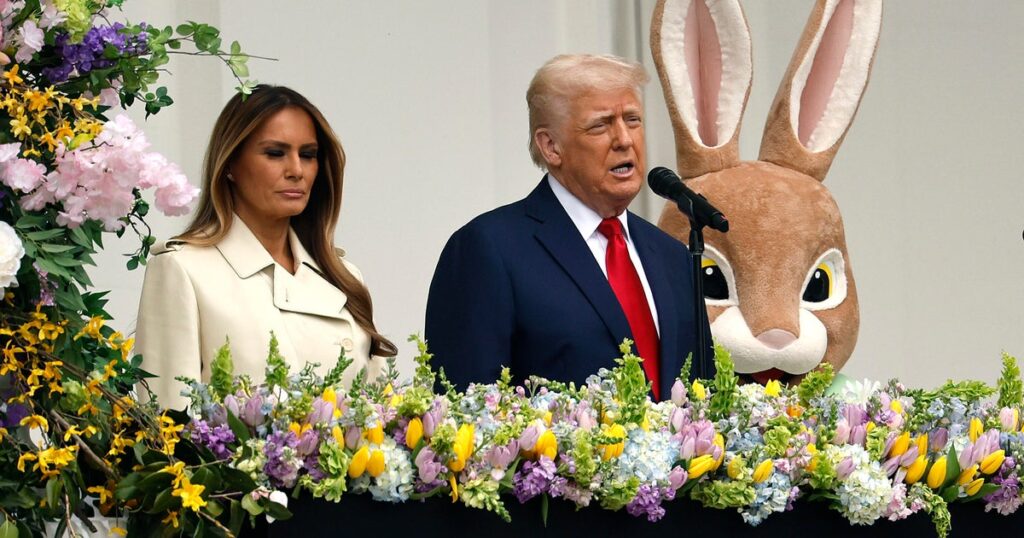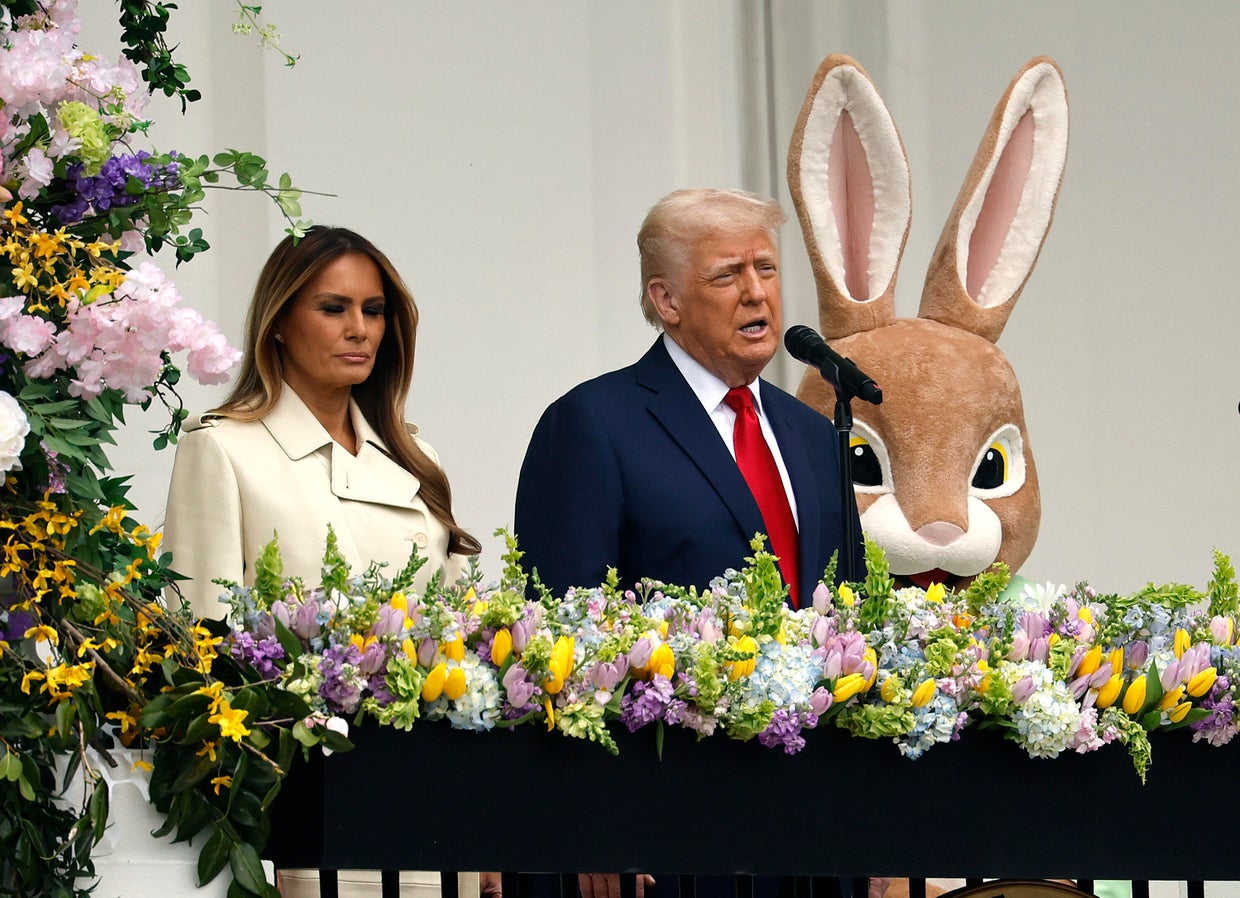President Trump and first lady Melania Trump hosted the White House Easter Egg Roll on Monday, an annual tradition, although this year’s celebration is being held only hours after Pope Francis died at age 88.
Mr. Trump honored the pope in brief remarks, calling him “a good man.” Mr. Trump said he ordered flags to be flown half-staff to honor the late pontiff.
Instead of candy-filled plastic Easter eggs, nearly 30,000 real eggs are adorning the White House South Lawn, despite record-high egg prices.
Mr. Trump on Monday complimented the National Park Service for decorating the White House lawn, calling it “beautiful and spiffy.”
Chip Somodevilla / Getty Images
Much of this year’s egg roll event is sponsored by corporations, a change from the traditional sponsorship by the American Egg Board. The event has traditionally been sponsored by the American Egg Board, partly to keep company advertising off White House grounds.
Sponsors who shell out for $200,000 will receive a “custom 30’x30′ branded activation” and four tickets to the WHEER brunch with the first lady and a choice of a meet and greet or White House tour. Packages are also available for $125,000 and $75,000.
Companies including Amazon, YouTube and Meta are sponsoring various stations for the event. Events company Harbinger prepared a 9-page brochure for prospective sponsors. It offers sponsors “media and PR exposure” in front of the White House press corps on the South Lawn.
This year’s theme looks forward to the upcoming 250th anniversary of the nation’s founding, and kids will have a chance to sign mini Declarations of Independence and dress up as the Founder Fathers.
Aside from children whose families have political connections, children are invited through a lottery for guests from all 56 U.S. states and territories.
The White House Easter Egg Roll is a longtime White House tradition. It dates back to 1878, when then-President Rutherford B. Hayes opened the White House South Lawn to children who usually rolled eggs along the Capitol’s grounds. As the White House puts it, Easter Monday celebrations became so popular in the 1870s that President Ulysses S. Grant signed a bill banning rolling eggs on Capitol grounds over landscape concerns.
What became an annual egg roll on the White House South Lawn was paused during World War I and World War II. But President Dwight D. Eisenhower reinstated the tradition in 1953.




